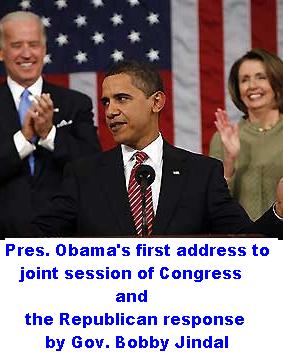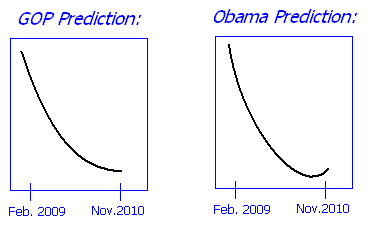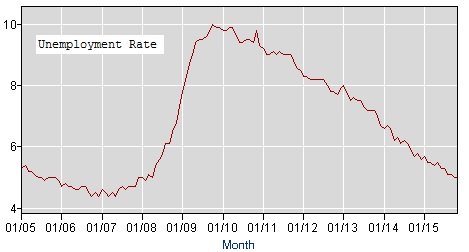|
|
Books by and about 2020 presidential candidates |
|
Crippled America,
by Donald J. Trump (2015) |
United,
by Cory Booker (2016) |
The Truths We Hold,
by Kamala Harris (2019) |
Smart on Crime,
by Kamala Harris (2010) |
Guide to Political Revolution,
by Bernie Sanders (2017) |
Where We Go From Here,
by Bernie Sanders (2018) |
Promise Me, Dad ,
by Joe Biden (2017) |
Conscience of a Conservative,
by Jeff Flake (2017) |
Two Paths,
by Gov. John Kasich (2017) |
Every Other Monday,
by Rep. John Kasich (2010) |
Courage is Contagious,
by John Kasich (1998) |
Shortest Way Home,
by Pete Buttigieg (2019) |
The Book of Joe ,
by Jeff Wilser (2019; biography of Joe Biden) |
Becoming,
by Michelle Obama (2018) |
Our Revolution,
by Bernie Sanders (2016) |
This Fight Is Our Fight,
by Elizabeth Warren (2017) |
Higher Loyalty,
by James Comey (2018) |
The Making of Donald Trump,
by David Cay Johnston (2017) |
|
Books by and about the 2016 presidential election |
|
What Happened ,
by Hillary Clinton (2017) |
Higher Loyalty ,
by James Comey (2018) |
Trump vs. Hillary On The Issues ,
by Jesse Gordon (2016) |
Hard Choices,
by Hillary Clinton (2014) |
Becoming ,
by Michelle Obama (2018) |
Outsider in the White House,
by Bernie Sanders (2015) |
|
|
Book Reviews |
(from Amazon.com) |
(click a book cover for a review or other books by or about the presidency from Amazon.com)
|
2009 address to a joint session of Congress, plus the Republican Response: Feb. 24, 2009

Click on a participant to pop-up their full list of quotations
from 2009 address to joint session of Congress (number of quotes indicated):
- Barack Obama (14)
- Bobby Jindal (7)
OR click on an issue category below for a subset. |
Pres. Obama's first address to a joint session of Congress was popularly called the "State of the Union" address, although that formal speech is not constitutionally required of an incoming president.
Pres. Obama used this speech -- aired nationally in primetime -- to finalize his economic plan. That plan, plus the economic stimulus package passed and signed the week before this speech, will comprise the next two years of economic policy.
Obama's detractors complain that the economic stimulus package contains too much spending that is not specifically targeted to job creation. However, economists point out that government spending of ANY kind creates an economic stimulus. If some of the spending gets converted into infrastructure or other capital improvements, then it's a double bonus.
There is no doubt that Obama and the Congressional Democrats used the economic stimulus package as "social engineering" to advance the causes they support -- Obama was explicit about his focus on health, education, and energy. Obama even got in some social engineering in the programs he CUT -- such as Cold War weaponry cuts.
The Republican response, by Gov. Bobby Jindal (a frontrunner in the early betting on the 2012 presidential race), laid out the GOP case. That case is heavily echoed in Congress by the unanimous disapproval of the Democratic stimulus package (with only three Republican Senators concurring with the Democratic majority, and no House members). The GOP is betting the 2010 election on their case that the Democratic stimulus package will fail.

These charts encapsulate Obama's State of the Economy speech and the GOP response. (OnTheIssues.org made them, not Obama nor Jindal!)
Both sides say the economy will do terribly for the next year. Maybe a little less terribly over time, but still getting worse.
Obama's program might turn around the economy by Nov. 2010 -- where "turn around" means that there might be some indicators that things are starting to improve, but we'll still be a lot worse off than we are now. If Obama is right, the Dems will win big in the Congressional elections of 2010.
The GOP response rejected Obama's proposal entirely, preferring a laissez-faire approach -- hands-off, let the market correct itself. That's a big bet against the federal bailout, because the bailout is already $3 trillion and likely to go higher, says Obama. The GOP's bet is that, by Nov. 2010, the economy still will not have turned around, and the public will be tired of spending trillions for nothing. If that bet pays off, the 2010 elections will be overwhelmingly pro-GOP, regaining the Senate and maybe even regaining the House. If that bet fails (i.e., if the economy shows signs of having bottomed out) then the Demcorats will gain even more seats in the House and Senate in 2010.
You can be sure that by Nov. 2010, the exact shape of the end of the curve won't be known very exactly, and hence will be the source of most of the debate in that election. The Dems will point to indicators that we've turned around, finally, and things are looking up (from the bottom of a very deep hole, but at least looking up!). The GOP will point to indicators that we still have not bottomed out, and spending trillions didn't work and it's time for a new approach.
(Pundits like me look for the inflection point -- when how-much-more-terrible-each-month stops increasing. You can determine that point by looking at job cuts each month, for example -- when the previous month was WORSE than this month, we've passed the inflection point, and the bottom is in sight. Not the END of the recession, but the bottom. As of Feb. 2009, we have not reached the inflection point yet -- every month is still worse than the month before -- but I drew the charts as if the inflection point starts right now).
-- Jesse Gordon, jesse@OnTheIssues.org, Feb. 26, 2009
Post-election FactCheck: The Democrats lost 6 seats in the Senate but retained majority control 53-47.
The Democrats lost 63 seats in the House, increasing the Repulican majority to 242-193.
In other words, the Democrats lost badly, but not the wrost possible (which would have meant losing the Senate).
Did our prediction about the bottom of the Great Recessions hold true?
To make our prediction accurately reflect the political outcome, the economic situation would have been that the recession had ended, but too recently to help Obama
(in terms of our charts above, the bottom of the recession occured just prior to Nov. 2010, to make our prediction accurate).
When was the actual bottom? The chart below shows the unemployment rate, which we consider the most important political indicator of recession.

Peak unemployment occured in Oct. 2009 to April 2010, with a steady decrease since then.
That indicates that the "Obama Prediction" curve is more accurate, but that the turnaround from the bottom was too small to affect the political outcome.
This same unemployment chart drove our prediction of the 2012 presidential election:
we predicted that if unemployment were above 8% prior to the Nov. 2012 election, Obama would lose badly,
and if unemployment were below 7% prior to the Nov. 2012 election, Obama would win easily.
In fact, unemployment was just below 8% but well above 7%, and Obama won (but not too easily).
| OnTheIssues.org excerpts: (click on issues for details)
|
Budget & Economy
Barack Obama: US will emerge from this recession, stronger than before.
|
Education
Barack Obama: Volunteer in your neighborhood & we help pay for college.
Barack Obama: $2,500 tax credit for all four years of college.
Barack Obama: Quitting high school is quitting on your country.
Bobby Jindal: Reinvented New Orleans with private/parochial scholarships.
|
Energy & Oil
Barack Obama: $15B in clean energy; plus market-based cap on carbon.
Barack Obama: FactCheck: US imports less oil today than in 2005.
Barack Obama: FactCheck: Chevy Volt uses Korean battery, but Ford's don't.
Bobby Jindal: More renewables; more nuclear power, more drilling.
|
Government Reform
Barack Obama: Economic agenda builds new foundation for lasting prosperity.
Bobby Jindal: Strength of America is not in government but in our citizens.
|
Health Care
Barack Obama: FactCheck: Healthcare costs cause one bankruptcy per minute.
Bobby Jindal: Universal access, but not government-run.
|
Homeland Security
Barack Obama: FactCheck: F-22 Raptor costs $140M and has never been used.
Bobby Jindal: Now is no time to cut funding for our troops.
|
Jobs
Barack Obama: FactCheck: Economic plan may create only 2.2M jobs, not 3.5M.
|
Principles & Values
Bobby Jindal: Mother was pregnant with him when parents arrived from India.
|
Tax Reform
Barack Obama: FactCheck: Tax cut only helps 75% or workers, not 95%.
Bobby Jindal: Create jobs by lowering tax rates for families & business.
|
Welfare & Poverty
Barack Obama: Help refinancing for homeowners facing foreclosure.
Barack Obama: FactCheck: Cannot limit refinancing to responsible borrowers.
|
The above quotations are from 2009 address to a joint session of Congress, plus the Republican Response: Feb. 24, 2009.
Related books, debates, and candidates:
- 2025 State of the Union speech, plus Democratic response
- 2025 Governors' State of the State speeches
- 2024 State of the Union speech, plus GOP responses
- 2024 Governors' State of the State speeches
- 2023 State of the Union speech, plus GOP, Working Family, & MAGA responses
- 2023 Governors' State of the State speeches
- 2022 State of the Union speech, plus GOP, Libertarian, progressive, & QAnon responses
- 2022 Governors' State of the State speeches
- 2021 State of the Union speech, plus responses by the Republican Party
- 2021 Governors' State of the State speeches
- 2020 State of the Union speech, plus responses by the Democratic Party
- 2020 Governors' State of the State speeches
- 2019 State of the Union speech, plus responses by the Democratic Party
- 2019 Governors' State of the State speeches
- 2018 State of the Union speech, plus response by the Democratic Party
- 2018 Governors' State of the State speeches
- 2017 State of the Union speech, plus response by the Democratic Party
- 2017 Governors' State of the State speeches
- 2016 State of the Union speech
- 2016 Governors' State of the State speeches
- 2015 State of the Union speech
- 2015 Governors' State of the State speeches
- 2014 State of the Union speech, plus response by Green Party, Republican Party, and Tea Party
- 2014 Governors' State of the State speeches
- 2013 State of the Union speech, plus response by GOP and Tea Party
- 2013 Governors' State of the State speeches
- 2012 State of the Union speech, plus response by GOP and Tea Party
- 2012 Governors' State of the State speeches
- 2011 State of the Union speech, plus response by GOP and Tea Party
- 2011 Governors' State of the State speeches
- 2007-2011 Mayors' State of the City speeches
- 2010 Governors' State of the State speeches
- Obama Q+A at GOP House Retreat, Jan. 2010
- 2010 State of the Union speech, plus response by Gov. Bob McDonnell (R, VA)
- 2009 Governors' State of the State speeches
- 2009 Address to Joint Session of Congress, plus response by Gov. Bobby Jindal (R, LA)
- 2009 Governors' State of the State speeches
- 2008 State of the Union speech, plus response by Gov. Kathleen Sebelius (D, KS)
- 2008 Governors' State of the State speeches
- 2007 State of the Union speech, plus response by Sen. James Webb (D, VA)
- 2007 Governors' State of the State speeches
- 2006 State of the Union speech, plus response by Gov. Tim Kaine (D, VA)
- 2005 State of the Union speech, plus responses by Sen Harry Reid (D, NV) & Rep. Nancy Pelosi (D, CA)
- 2004 State of the Union speech, plus responses by Sen Tom Daschle (D, SD) & Rep. Nancy Pelosi (D, CA)
- 2004 Governors' State of the State speeches
- 2001 Governors' State of the State speeches
- Other early 2000s Governors' State of the State speeches
- Other late 1990s Governors' State of the State speeches
- Historical State of the Union addresses:
Clinton
- Bush
- Reagan
- Carter
- Ford
Nixon
- LBJ
- JFK
- Eisenhower
- Truman
|
|














